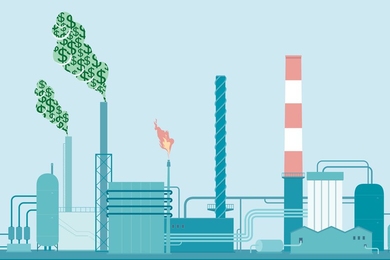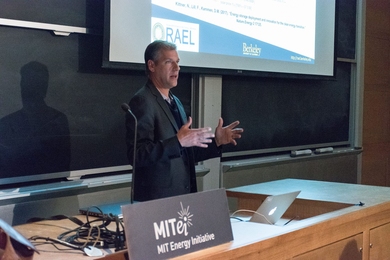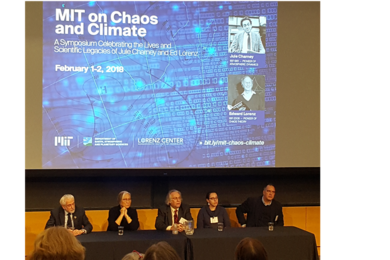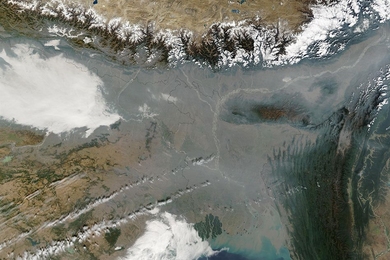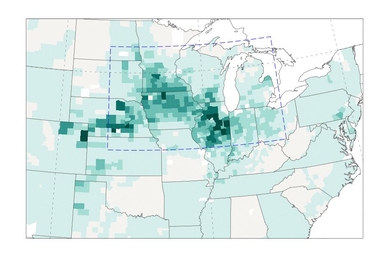Carbon taxes could make significant dent in climate change, study finds
Several different carbon-pricing approaches would help reduce emissions, and some would be fair as well, researchers report.
Determining the timing of methanogen evolution
Scientists conclude methane-producing microbes date back 3.5 billion years, supporting the hypothesis that they could have contributed to early global warming.
3 Questions: Innovating for the clean energy economy
Daniel Kammen of the University of California at Berkeley discusses current efforts in clean energy innovation and implementation, and what's coming next.
3 Questions: The future of transportation systems
Daniel Sperling of the University of California at Davis discusses the major transformations in store for mobility.
MIT Energy Conference speakers say transformation can happen fast
New technologies, systems, and business models are rapidly changing the energy landscape, experts attest.
Urban heat island effects depend on a city’s layout
The way streets and buildings are arranged makes a big difference in how heat builds up, study shows.
3 Questions: The future of nuclear energy
Jacopo Buongiorno and John Parsons, co-directors of the MITEI Low-Carbon Energy Center for Advanced Nuclear Energy Systems, discuss how to overcome the challenges and realize the benefits of expanding nuclear power.
Chaos and climate: Celebrating two pioneers of modern meteorology
Trailblazing scientists Jule Charney and Edward Lorenz gave us numerical weather prediction and chaos theory, highlighting the value of basic research.
Projecting the impacts of climate change
Joint Program researchers advocate for improved modeling approach.
Intensive agriculture influences U.S. regional summer climate, study finds
An increase in corn and soybean production in the Midwest may have led to cooler, wetter summers there.
Jennifer Rupp: Engineering practical ceramics
Assistant professor in EECS is developing materials with novel structures and useful applications, including renewable energy and information storage.
Undergrads gain experience in energy sector with MITEI member companies
MISTI places MIT students in energy-focused internships abroad.
3 Questions: Transforming our electric power system
Christopher Knittel and Francis O'Sullivan, co-directors of the MITEI Low-Carbon Energy Center for Electric Power Systems Research, are exploring cleaner, more reliable, and more cost-effective solutions.
Is Massachusetts ready for carbon pricing?
Panel at MIT explores benefits, costs, and political challenges.

